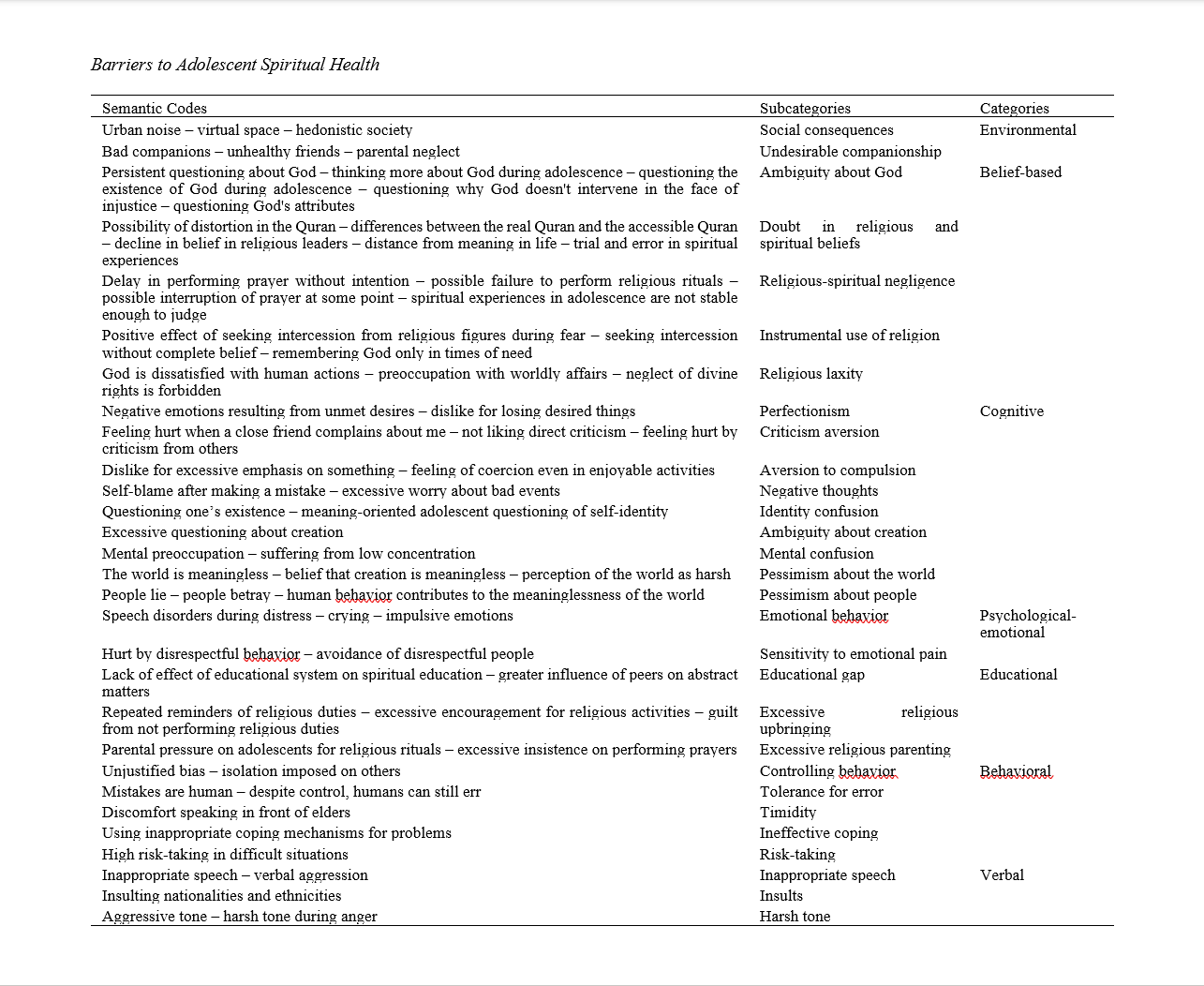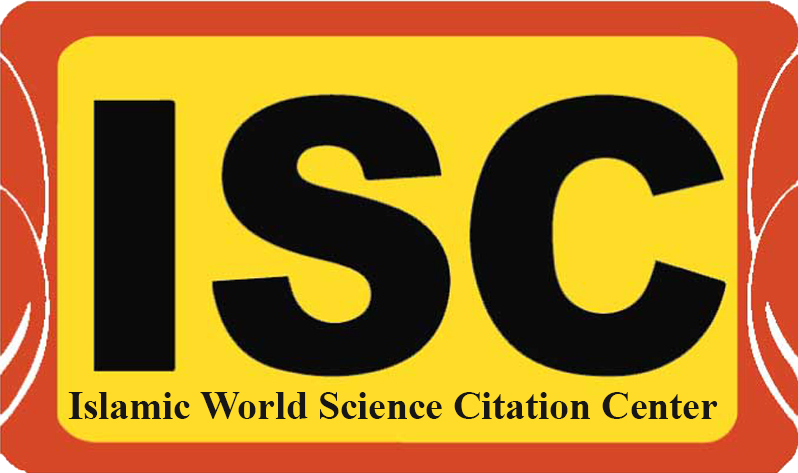Spiritual Health Reducers in Adolescents
Keywords:
health, spirituality, religion, adolescent, high school, studentAbstract
Objective: The study aimed to explore the barriers to spiritual health in adolescents.
Methods and Materials: This research employed a qualitative content analysis approach, utilizing semi-structured interviews to gather data. The study sample included 12 adolescents (born between 2003 and 2009), 8 parents, and 7 experts in spiritual health and adolescent psychology, all residing in Tehran. Data were collected over 2022–2023 through in-depth interviews, coded, and categorized into thematic areas. Participants were selected using purposive sampling until saturation was reached. The data analysis followed the Graneheim and Lundman (2004) content analysis methodology.
Findings: The study identified multiple barriers to adolescent spiritual health, categorized into environmental, belief-based, cognitive, behavioral, educational, and psychological-emotional themes. Key factors included urban distractions, social media, doubts about religious beliefs, religious laxity, instrumental use of religion, emotional instability, perfectionism, and lack of educational support. Adolescents were found to grapple with existential questions, self-identity issues, and a lack of understanding or support from their environment, leading to mental and spiritual conflicts.
Conclusion: Spiritual health in adolescents is deeply influenced by family, education, and environmental factors. Despite the innate potential for spiritual growth, external barriers such as excessive technological exposure, parental pressure, and societal distractions can hinder spiritual development. Policymakers and educators should focus on reducing these barriers by fostering supportive environments and integrating spiritual health into adolescent development programs.
Downloads

Downloads
Additional Files
Published
Submitted
Revised
Accepted
Issue
Section
License
Copyright (c) 2024 Maryam Rahimzadeh (Author); Maryam Safara (Corresponding Author); Alireza Aghayousfi (Author)

This work is licensed under a Creative Commons Attribution-NonCommercial 4.0 International License.






















